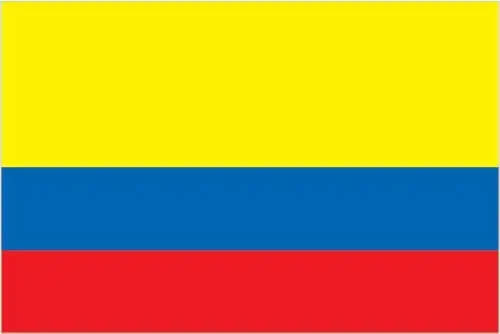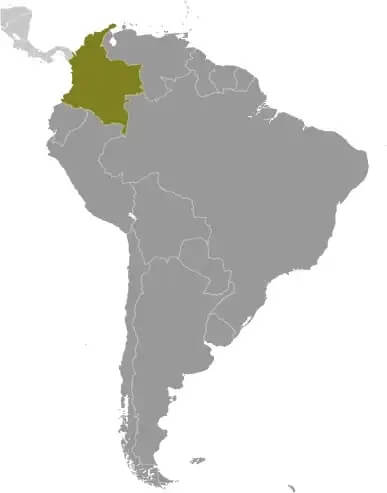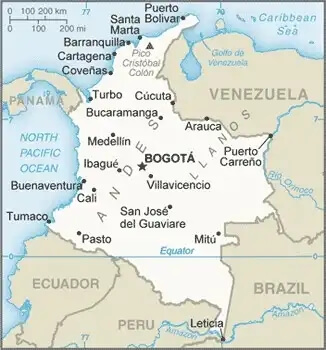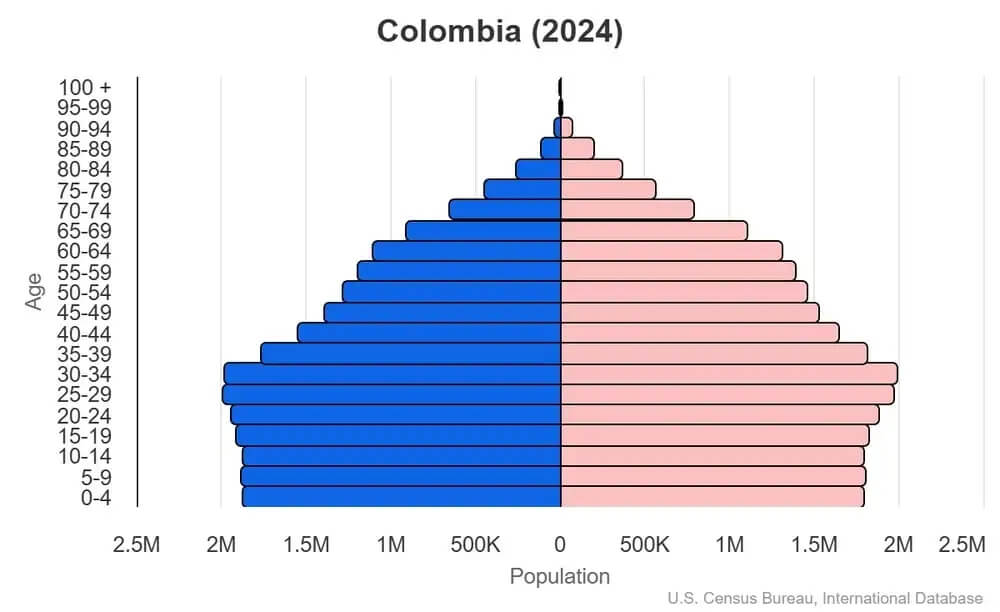World Book
Colombia
World Book Index
67


With a score of 67, the country is ranked 77th out of 158 countries in the World Book ranking. (more information)
Introduction
Colombia was one of three countries that emerged after the dissolution of Gran Colombia in 1830 -- the others are Ecuador and Venezuela. Despite decades of internal conflict and drug-trade-related challenges, Colombia maintains relatively strong democratic institutions characterized by peaceful, transparent elections and the protection of civil liberties.
Neighboring countries
Brazil - Ecuador - Panama - Peru - Venezuela
Geography
Area
total: 1,138,910 sq km
land: 1,038,700 sq km
water: 100,210 sq km
Climate
tropical along coast and eastern plains; cooler in highlands
Natural resources
petroleum, natural gas, coal, iron ore, nickel, gold, copper, emeralds, hydropower
People and Society
Population
total: 49,588,357 (2024 est.)
Ethnic groups
Mestizo and White 87.6%, Afro-Colombian (includes Mulatto, Raizal, and Palenquero) 6.8%, Indigenous 4.3%, unspecified 1.4% (2018 est.)
Languages
Spanish (official) 98.9%, indigenous 1%, Portuguese 0.1%; 65 indigenous languages exist (2023 est.)
Religions
Roman Catholic 63.6%, Protestant 17.2% (Evangelical 16.7%, Adventist 0.3%, other Protestant 0.2%), Jehovah's Witness 0.6%, Church of Jesus Christ 0.1%, other 0.3%, believer, 0.2%. agnostic 1%, atheist 1%, none 14.2%, unspecified 1.8% (2023 est.)
Population growth rate
0.48% (2024 est.)
Government
Government type
presidential republic
Capital
name: Bogotá
Executive branch
chief of state: President Gustavo Francisco PETRO Urrego (since 7 August 2022)
head of government: President Gustavo Francisco PETRO Urrego (since 7 August 2022)
Diplomatic representation in the US
chief of mission: Ambassador Daniel GARCÍA-PEÑA JARAMILLO (since 18 September 2024)
Diplomatic representation from the US
chief of mission: Ambassador (vacant); Chargé d'Affaires John McNAMARA (since 1 February 2025)
Economy
Economic overview
prior to COVID-19, one of the most consistent growth economies; declining poverty; large stimulus package has mitigated economic fallout, but delayed key infrastructure investments; successful inflation management; sound flexible exchange rate regime; domestic economy suffers from lack of trade integration and infrastructure
Real GDP (purchasing power parity)
$978.592 billion (2024 est.)
$961.82 billion (2023 est.)
$955.016 billion (2022 est.)
Real GDP per capita
$18,500 (2024 est.)
$18,400 (2023 est.)
$18,500 (2022 est.)
Exports
$68.866 billion (2024 est.)
$68.674 billion (2023 est.)
$73.514 billion (2022 est.)
Exports - partners
USA 27%, Panama 9%, India 5%, China 5%, Netherlands 4% (2023)
Exports - commodities
crude petroleum, coal, gold, coffee, refined petroleum (2023)
Imports
$78.633 billion (2024 est.)
$76.449 billion (2023 est.)
$89.608 billion (2022 est.)
Imports - partners
USA 26%, China 22%, Brazil 6%, Mexico 5%, Germany 4% (2023)
Imports - commodities
refined petroleum, cars, broadcasting equipment, aircraft, packaged medicine (2023)
Human Development Index
The country's Human Development Index (HDI) is 0.788, ranking it 83th out of 193 countries tested. (more information)
World Happiness Report
The World Happiness Report ranked the country 79th out of 158 countries tested with a score of 5.714. (more information)



